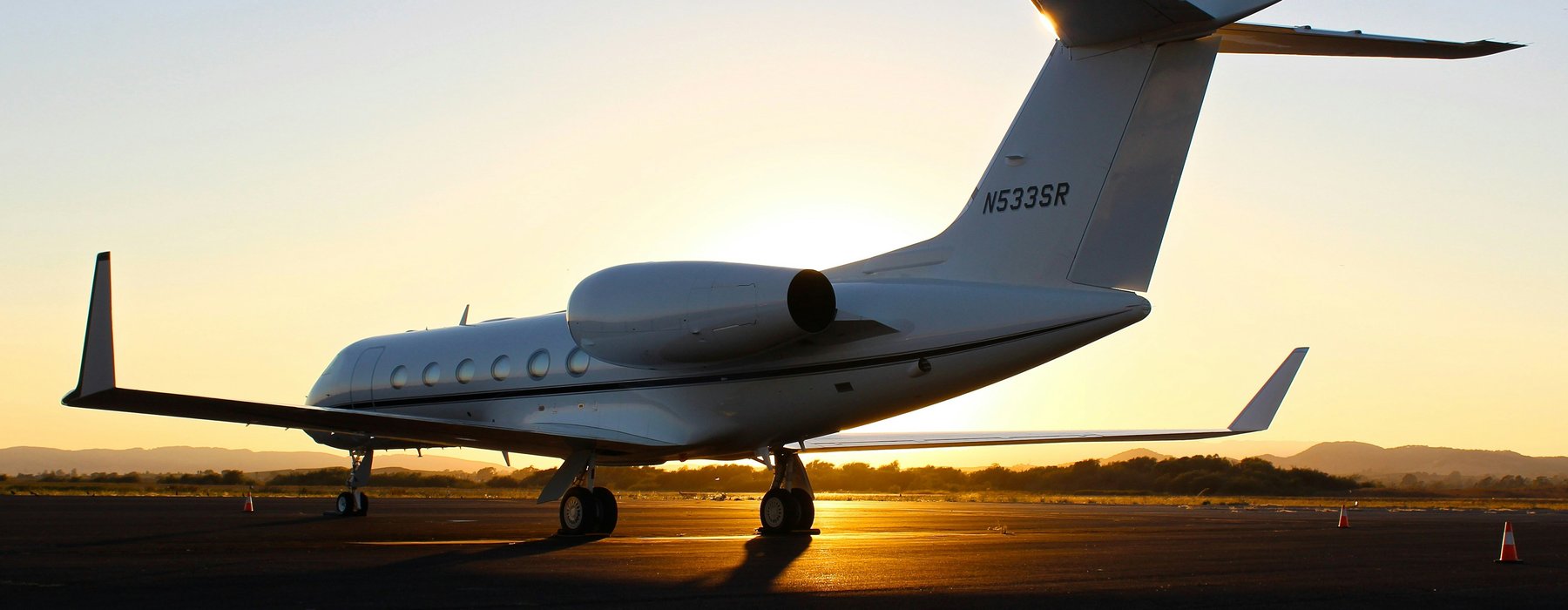


I'm Admin in the United Kingdom
28 Oct, 2024
4 mins read time
The private jets of 23 of the world’s richest billionaires produce, on average, more carbon emissions in just over a day than the average person in Scotland does in a whole year, new Oxfam Scotland analysis reveals.
Oxfam Scotland’s illustrative findings uncover that:
- In just 31.6 hours, the private jets of 23 billionaires emit, on average, more carbon pollution than the average emissions generated in Scotland by each person over an entire year.
- It would take an average person in Scotland more than 6,360 years to generate the total emissions produced by the private jets of 23 billionaires emit over just one year.
- The total annual emissions generated by the private jets of 23 billionaires are equivalent to 35 million train journeys between Edinburgh Waverley and Glasgow Queen Street.
The shocking statistics come ahead of the UK Government’s first Budget this week, where Oxfam is calling on the Chancellor to increase taxes on climate-polluting extreme wealth – starting with private jets and superyachts – to raise the much-needed funds to tackle the climate crisis in a way that targets those most responsible and those who can most afford to pay.
However, Oxfam Scotland says the Scottish Government must not wait for action at Westminster, and must instead use existing devolved powers to swiftly bring in a Scottish tax on super polluting private jets leaving Scotland’s airports.
Jamie Livingstone, Head of Oxfam Scotland, said: “Ultra wealthy polluters are flying high while the world below burns. Private jets may be status symbols for the elite, but their reckless pollution is fueling the climate crisis which threatens us all. This deadly destruction is inexcusable. It’s time for both the UK and Scottish Governments to step up and land a fair tax on those choosing to fly excessive, planet-wrecking private jets.”
Oxfam Scotland’s analysis coincides with Oxfam’s publication of a global first-of-its-kind study, Carbon Inequality Kills, which tracks the emissions of 50 of the world’s richest billionaires’ private jets, yachts and polluting investments and details how the super-rich are fueling inequality, hunger and death across the world. The report comes ahead of COP29 in Baku, Azerbaijan, amidst growing fears that climate breakdown is accelerating, driven largely by the emissions of the richest people. The issue of climate finance for impacted communities will take centre stage.
The global Oxfam report presents detailed new evidence of how billionaires’ outsized emissions are accelerating climate breakdown and wreaking havoc on lives and economies. The world’s poorest countries and communities have done the least to cause the climate crisis, yet they experience its most dangerous consequences.
Carbon Inequality Kills details three critical areas where the emissions of the world’s richest 1 percent since 1990 are already having – and are projected to have – devastating consequences:
- Global inequality. The emissions of the richest 1 percent have caused global economic output to drop by $2.9 trillion since 1990. The biggest impact will be in countries least responsible for climate breakdown. Low- and lower-middle-income countries will lose about 2.5 percent of their cumulative GDP between 1990 and 2050. Southern Asia, South-East Asia and Sub-Saharan Africa will lose 3 percent, 2.4 percent and 2.4 percent, respectively. High-income countries, on the other hand, will accrue economic gains.
- Hunger. The emissions of the richest 1 percent have caused crop losses that could have provided enough calories to feed 14.5 million people a year between 1990 and 2023. This will rise to 46 million people annually between 2023 and 2050, with Latin America and the Caribbean especially affected (9 million a year by 2050).
- Death. 78 percent of excess deaths due to heat through 2120 will occur in low- and lower-middle-income countries.
If the world continues its current emissions, the carbon budget (the amount of CO2 that can still be added to the atmosphere without causing global temperatures to rise above 1.5°C) will be depleted in about four years.
Marinel Sumook Ubaldo, a young climate activist from the Philippines, said: “It’s become so tiring, to be resilient. It’s not something that I have chosen to be – it was necessary to survive. A child shouldn’t need to be strong. I just wanted to be safe, to play in the sand – but I was always fleeing when storms came. Counting dead bodies after a typhoon isn’t something any child should have to do. And whether we survive or not, the rich polluters don’t even care.”
Oxfam’s global report used public ownership information to identify private jets belonging to 23 billionaires globally, and then tracked them over a 12-month period. On average, these 23 billionaires each took 184 flights – spending 425 hours in the air.
The new data adds to growing calls for John Swinney to use the upcoming Scottish Budget to commit to introducing a tax on private jets, with the First Minister having already said the proposal is ‘an interesting idea’ and a ‘welcome suggestion’.
In a paper released last month, Oxfam Scotland outlined how such a tax could raise over £21 million per year. If the tax is applied across Scotland, including to those using private jets from remote and island airports, campaigners say it could raise up to an estimated £29.7 million. The paper showed there were nearly 12,911 private flights recorded to and from Scotland’s airports in 2023.
Campaigners are calling for the First Minister to turbo-charge talks with the UK Government to enable the Scottish Government to operationalise its long-held powers to tax passengers on planes leaving Scottish airports. They say there is no meaningful obstacle to the two governments agreeing that the existing exemption within the UK-wide Air Passenger Duty for passengers travelling from the Highlands and Islands can continue – other than for those choosing to fly by private jets – when it is replaced by the Air Departure Tax in Scotland.
Jamie Livingstone, Head of Oxfam Scotland, added: “Billionaires’ lifestyle emissions utterly eclipse those of ordinary people and it’s time they were brought back down to earth. A devolved private jet tax would raise crucial funds to fight climate change while sending a clear signal that the ultra-wealthy will no longer be permitted to use Scottish skies to pollute with impunity.”
/ENDS
For more information and interviews, please contact: Rebecca Lozza, Oxfam Media and Communications Adviser, Scotland and Wales: rlozza1@oxfam.org.uk / 07917738450
Notes to Editors
- Download Oxfam’s global report “Carbon Inequality Kills” and the methodology note.
- The total emissions generated by the private jets of 23 billionaires over a one year period in 2023-24 were estimated to be 47,702 tonnes of CO2. The private jet statistics are expressed in CO₂, and no attempt was made to adjust to CO₂ equivalent, as emission factors for N₂O and CH₄ in this context are considered highly uncertain by IPCC, as outlined in the Methodology Note of the full report.
- Net greenhouse gas emissions per capita in Scotland in 2022 (the most recent year) were 7.5 tonnes of CO2e – see Scottish Greenhouse Gas Statistics 2022 – UK comparisons (table 2) (note: this relates to territorial emissions) According to the LNER calculator, a train journey from Edinburgh to Glasgow generates 1.35 kg of CO2e.
- Read Cleared for take-off: a private jet tax for Scotland here: https://www.oxfam.org.uk/documents/913/Cleared-for-Take-Off-Oxfam-Scotland-Discussion-Paper-1.pdf